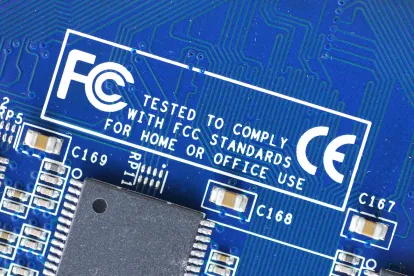CC Approves 900 MHz Band Transition
The FCC adopted a Report and Order, Order of Proposed Modification, and Orders last Wednesday realigning the 900 MHz band to establish a 3 x 3 MHz broadband channel within the 900 MHz LMR band. The Order also reserves 2 MHz of paired spectrum for continued narrowband operations (Vol. XVII, Issue 17). The transition will initially be accomplished through voluntary negotiations between the prospective broadband licensee and narrowband incumbents. The broadband licensee’s initial license term will be for 15 years and a 10-year term for each subsequent renewal.
Court Denies Motion to Dismiss Certain Claims in Text-to-911 Case
The U.S. District Court for the Eastern District of New York issued a ruling to allow a 2017 lawsuit alleging that New York City, Nassau County, and Suffolk County violated the Americans with Disabilities Act of 1990 (ADA) and the Rehabilitation Act of 1973 (RA) to go forward against both Nassau and Suffolk County. The plaintiff, who is hearing impaired, claims the defendants violated the ADA and RA by failing to make 911 services accessible to those with hearing loss or speech and communication disabilities because they are not able to contact 911 via text message. All three defendants filed motions to dismiss for lack of standing.
$7.5 Million in CAF-II Funding Awarded
The FCC released two Public Notices last Thursday authorizing over $7.5 million in CAF-II funding over 10 years to expand rural broadband in Arizona, Colorado, Illinois, Missouri, Nebraska, New York, and Oklahoma. This funding is the twelfth wave of support issued since the completion of the CAF-II auction in August 2018 (Vol. XV, Issue 36), bringing the total authorized funding to over $1.444 billion. The funding for New York is the fourth wave of matching funds provided through the Commission’s partnership with the state’s New NY Broadband Program.
Proposed COVID-19 Relief Bill Boosts Home Broadband
The Health and Economic Recovery Omnibus Emergency Solutions Act (HEROES Act) was passed by the U.S. House of Representatives last week, which reserves over $6 billion in funds to address connectivity issues in light of the pandemic. The $3 trillion Covid-19 relief bill allocates $1.5 billion for an Emergency Connectivity Fund to provide students with take-home Wi-Fi hotspots and other connected devices. It also allocates $4 billion for additional Lifeline discounts for those who have lost their jobs during the pandemic, as well as $1.5 billion to address immediate connectivity needs among Native American communities.
OSHA Fines Construction Company $25,000 for Violations
On April 28, the Occupational Safety and Health Administration (OSHA) Review Commission issued a Decision and Orderfinding that Gate Precast Company repeatedly violated OSHA rules by failing to provide a fall protection system for workers at an Alabama worksite. According to the Decision and Order, two temporary employees of Gate Precast Company were working on an unprotected roof 24 feet from the ground without any fall protection equipment. OSHA’s rules require employees on a walking or working surface with unprotected sides that are over six feet off the ground to be protected by some type of fall safety system. The Commission assessed a $25,667 penalty against Gate Precast.







 />i
/>i

